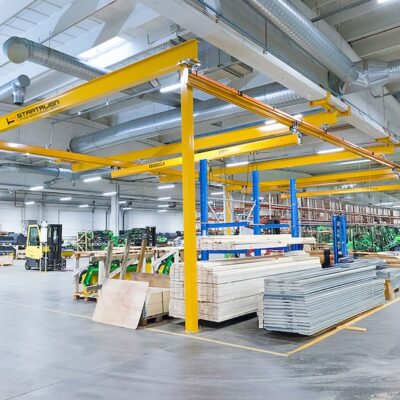Could your work space be affecting your work pace?
Health coach Rich Ellis highlights the impact that the work environment has on worker productivity and offers some suggestions for improving peoples’ output. Today’s pace of living and working isn’t slowing […]
Health coach Rich Ellis highlights the impact that the work environment has on worker productivity and offers some suggestions for improving peoples’ output.
Today’s pace of living and working isn’t slowing down anytime soon. Reliance on resilience is becoming increasingly important as people attempt to manage the impact of work, family and other responsibilities that take their toll on our bodies and our brains.
The impact that the work environment is having on the ability for people to maximise their output is critical to business success. The likes of Google and other Silicon Valley companies have already tapped into the ability to enhance people’s productivity by setting up spaces that allow for recovery during the working day.
Take an athlete who is managed by a coach. The coach’s job is to help the athlete perform at his or her highest level when it matters – on competition day. The rest of the time it is about building towards the most important day. That programme has peaks and troughs so the athlete can recover and perform better next time, having allowed the body to respond and adapt to the training ‘stress’.
What if that athlete never got a break? What if the coach just expected ongoing high performance without a break – the athlete would break, right?
It’s the same in the workplace. If we do not let our brains and bodies have the down time they need we will be heading for a ‘breakdown’.
The setup and culture of an office environment can make the difference between being able to take micro-breaks even while working perhaps, but also taking breaks that allow people to totally disengage with what they are doing, reset their hormones to a health balance and then continue on with work at a better pace with a clearer mind and a better quality output.
For example, a busy open plan office may well cause some people a stress response due to the over stimulation of senses all day, along with trying to have conversations that may be affected by the background noise. Equally, people may shift their workday to an earlier start or later finish to attempt to avoid some of this over stimulation; to get some ‘quality’ work done without interruption. This ‘shifting’ of hours may be a good thing from a productivity point of view but it may also affect sleep routines if rising extra early, or family time if arriving home late – all potentially negatively impacting the recovery part of a working person’s day.
So what’s the solution?
A small study showed a group of people who first spent one normal working week in the traditional office where no particular emphasis was put on recovery or breaks. In the second week of the study they were moved to a different environment where they were given the opportunity to take breaks in ergonomically designed workstations and encouraged to take breaks to recharge away from screens.
The participants reported feelings of lower stress and better sleep during the second week. Activities they were encouraged to do included: deep breathing exercises, and creative writing in a quiet, pod like space.
Heart rates were measured, as was heart rate variability – a measure of stress levels in your body. These two are inversely related, meaning the higher your normal heart rate the lower your heart rate variability. If your variability is low this indicates your body is under some level of stress. If it is high then the gap between beats is different and your body is under less stress. Having higher variability means the body is more able to adapt to different things put upon it. Think of this as being ‘workload’. If you keep piling work load onto your ‘plate’ there has to be a breaking point somewhere, just like the athlete – ideally a break you take in your day rather than a break down!
Using these measures, plus feedback from people, can help shape the culture and design of the workplace to allow for the work to get done but for the people doing the work to not suffer as a result. Therefore setting that business up for sustainable success – along with a happy productive team behind it.
Rich Ellis is a health coach, speaker and mentor. He works with businesses to maximise productivity. Email: [email protected]






